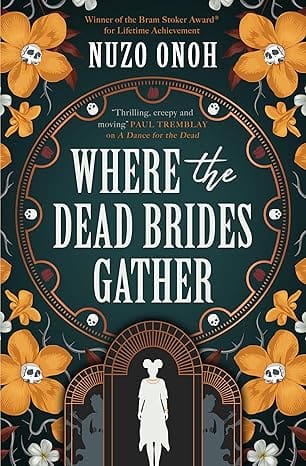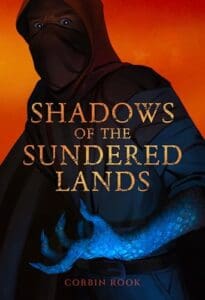
Synopsis:
Bata, a young girl tormented by nightmares, wakes up one night to find herself standing sentinel before her cousin’s door. Her cousin is to get married the next morning, but only if she can escape the murderous attack of a ghost-bride, who used to be engaged to her groom.
A supernatural possession helps Bata battle and vanquish the vengeful ghost bride, and following a botched exorcism, she is transported to Ibaja-La, the realm of dead brides. There, she receives secret powers to fight malevolent ghost-brides before being sent back to the human realm, where she must learn to harness her new abilities as she strives to protect those whom she loves.
By turns touching and terrifying, this is vivid supernatural horror story of family drama, long-held secrets, possession, death – and what lies beyond.
Review:
In this chilling dark fantasy tale of tradition, power, and well… dead brides, Nuzo Onoh masterfully spins a haunting web of Nigerian folk horror, that grips you from page 1. With the “Queen of African Horror,” at its helm, one would hope for some seriously ghostly goodness, but, exceeding all expectations, “Where The Dead Brides Gather,” delivers in spectral spades. Far from a mere dabble in the supernatural, Onoh fearlessly dives head-first, exploring fantastical realms and creating her own rich folklore, sweeping readers off of their feet, and scooping them up into a macabre waltz. By the time “Where The Dead Brides Gather,” comes to its denouement, the reader is left rattled, with a little whiplash, but grinning. This one is, in a word, fun. Thank you Titan for my ARC copy, this story of vows, veils and vengeance hits shelves on October 22nd.
Our pint-sized protagonist is Akuabata, whose life in a rural Nigerian village, just outside of Lagos city, is turned entirely on its head, the night before her cousin’s wedding. Having been afflicted with strange dreams, a lingering gift from a near-death experience a few years ago, she finds that what (until now) seemed to be nothing more than night terrors, may actually have some substance. When the vengeful spirit of a deceased bride, who died before she could make it to the altar, inhabits the body of her cousin, Bata finds herself hosting a “bride sentinel,” whose role is somewhat of a supernatural bodyguard, defending the living from these undead, half-scorned lovers.
This is only the very top tier of the wedding cake- Onoh wastes no time in dragging us deeper into the lore surrounding these incorporeal brides to be, the mystical afterlife that awaits them, the elusive council responsible for assembling these mystical worlds, and the range of powers that are perks of the bride sentinel gig.
The world-building…honestly, it took a little time for me to get my head around everything, especially for someone who generally keeps fantasy off of the menu, but Onoh inexplicably manages to layer this in a way that allows the reader to digest and assimilate what on earth just happened, before promptly yanking the rug out from under their feet once again. I certainly found it a trickier read to get my head around, but this seems to be the cost of a truly unique ghost story, and I would wipe it from my memory and reread it before you could say boo.
The ghost brides are spirits in the first place due to the unfinished business they have, of course particularly in regard to their unspoken vows. An eerie manifestation of broken promises and thwarted destinies, the dead brides are obsessed with possessing what could have been. Their haunting is deeply personal, but also a reflection of the societal values, which seem to overlook women beyond the veil of matrimony. The cultural reverence for marital rites is certainly made obvious, and twisted into a nightmare. At times an indictment of the patriarchy, with Bata working hard for the right to be properly educated, and many of the women in the novel seemingly stuck in a purgatory where their existence is tethered to their marriage, Onoh unflinchingly tackles the sexism found all too often within small communities. The men in Bata’s life, particularly her father, fluctuate between dismissiveness and possessiveness, illustrating a deep-rooted misogyny that haunts every interaction, perhaps more so than the ghost brides- who may be bound to our realm by expectations as opposed to willingness.
“Where The Dead Brides Gather,” is a difficult novel to review, as there’s no real parallels I can draw to it. Defying easing categorisation, and transcending the boundaries of genre, there’s aspects of Octavia Butler’s complex world-building, Cassandra Khaw’s atmospheric horror, and perhaps a little of Ben Okri’s ethereal magical realism- but none of these fully encapsulate what Onoh has managed to conjure up. “Where The Dead Brides Gather,” is simply a novel that readers need to say “I do,” to, and trust in the process of. With a story like this, “‘Til death do us part,” takes on a whole new meaning.









Leave a Reply